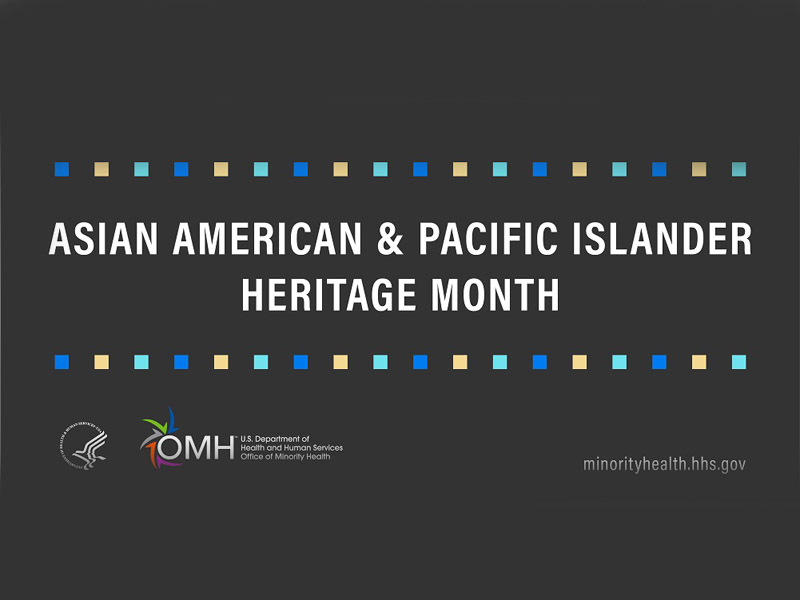Recognizing Asian American & Pacific Islander Heritage Month
Office of Minority Health Develops Events, Resources to Raise Awareness
May 6, 2021, 8:35 a.m. News Staff — First observed as a weeklong event in the 1970s, then expanded to include the entire month of May in the 1990s and renamed to its current moniker in 2009, Asian American & Pacific Islander Heritage Month celebrates the achievements and contributions of Asian Americans and Pacific Islanders in the United States.

This year, the Office of Minority Health has developed a series of events to generate greater awareness of AAPI Heritage Month. The office has also adopted two hashtags — #StopAAPIHate and #VaccineReady — and assembled a collection of graphics and messages that family physicians and others can use to promote AAPI Heritage Month on social media.
Events
On May 8, from 2-3:30 p.m. ET, the OMH, in conjunction with the National Park Service and the White House Initiative on Asian Americans and Pacific Islanders, will host “Past and Present: Addressing Racism and Intolerance Against Asian Americans,” a virtual panel discussion designed to showcase ongoing efforts to overcome racism and health inequities at the federal level. Moderated by Erin Aoyama, a doctoral student at Brown University, the panel will feature perspectives from a number of Asian Americans who are driving projects to protect and power AAPI communities throughout the country. The panel can be viewed live on YouTube.
On May 19, the OMH, the Association of Asian Pacific Community Health Organizations and the National Council of Asian Pacific Americans will host an hour-long Twitter chat beginning at 2 p.m. ET. During the chat, the organizations will share resources and information with attendees to help maintain the physical and emotional health of AAPI individuals and communities during the COVID-19 pandemic.
Social Media
The OMH has created 12 shareable graphics of various sizes, each designed to promote AAPI Heritage Month and the #StopAAPIHate and #VaccineReady hashtags. Graphics are available in English as well as Chinese (both traditional and simplified), Japanese, Korean, Tagalog and Vietnamese.
The OMH has also created more than a dozen customizable social media posts consisting of images and suggested messaging. High-resolution images can be downloaded for use on Facebook, Twitter or Instagram, and the messaging contains hashtags and links to the AAPI webpage.
Other Items of Note
Additionally, the OMH has created AAPI-centric pages that address health disparities and link to resources from the CDC and other state and national agencies, and the office’s Blog for Health Equity contains entries from OMH officials dating to 2014.
AAPI and AAFP
In March, in response to a series of shootings at Georgia spas that killed eight people, including six women of Asian descent, the Academy issued a strongly worded statement that denounced an ongoing rise in violence against the AAPI community.
The Academy has also issued numerous statements and policies on health equity, and in January, it joined with the Asian & Pacific Islander American Health Forum, the Association of Asian Pacific Community Health Organizations and other members of the Adult Vaccine Access Coalition in a letter in support of the Community Immunity During COVID-19 Act.
Finally, the AAFP’s EveryONE Project Toolkit contains a series of tools and downloadable forms that members can use to discuss social determinants of health with their patients and develop a corresponding action plan. The forms are available in several languages, including Chinese, Korean, Tagalog and Vietnamese.